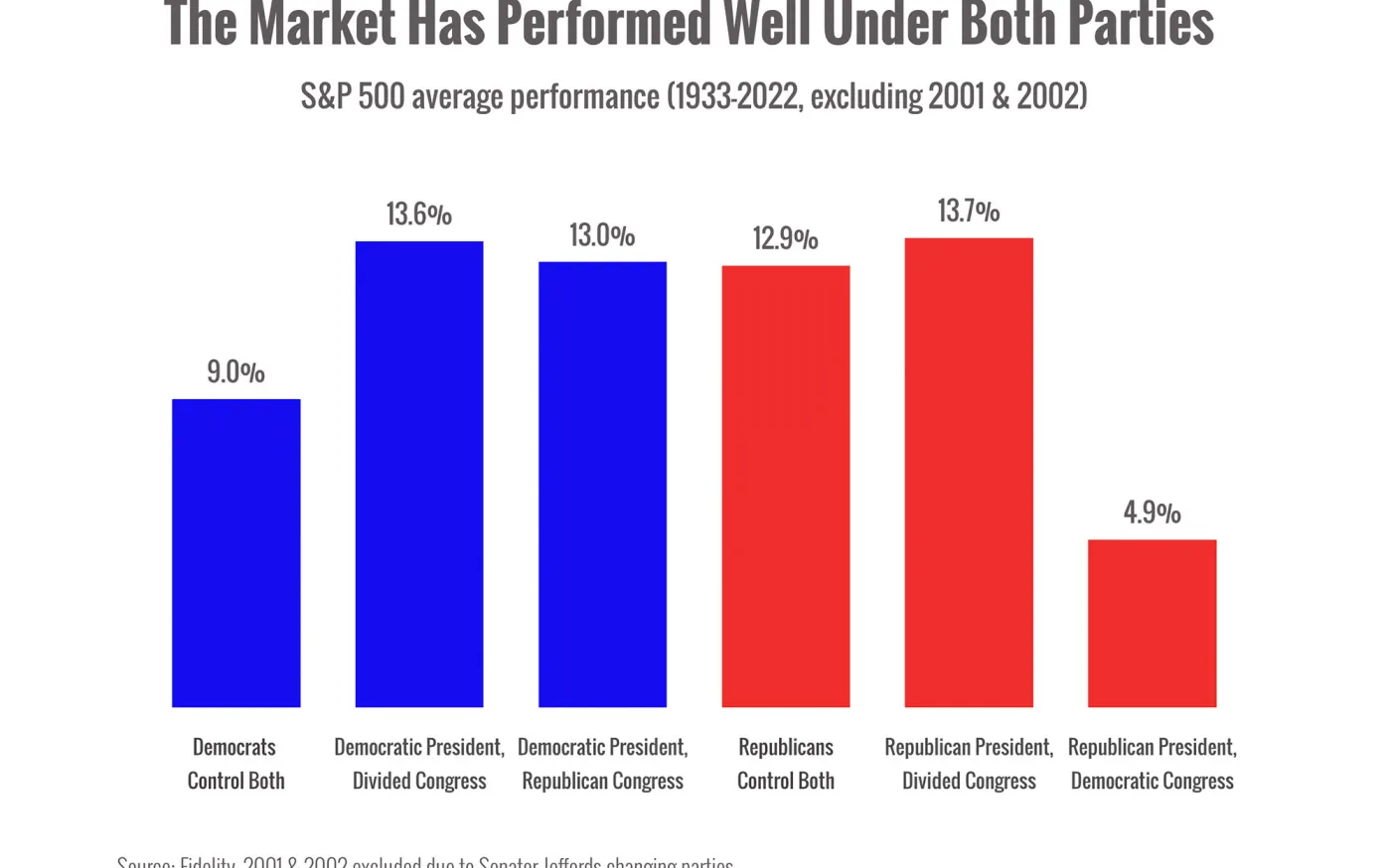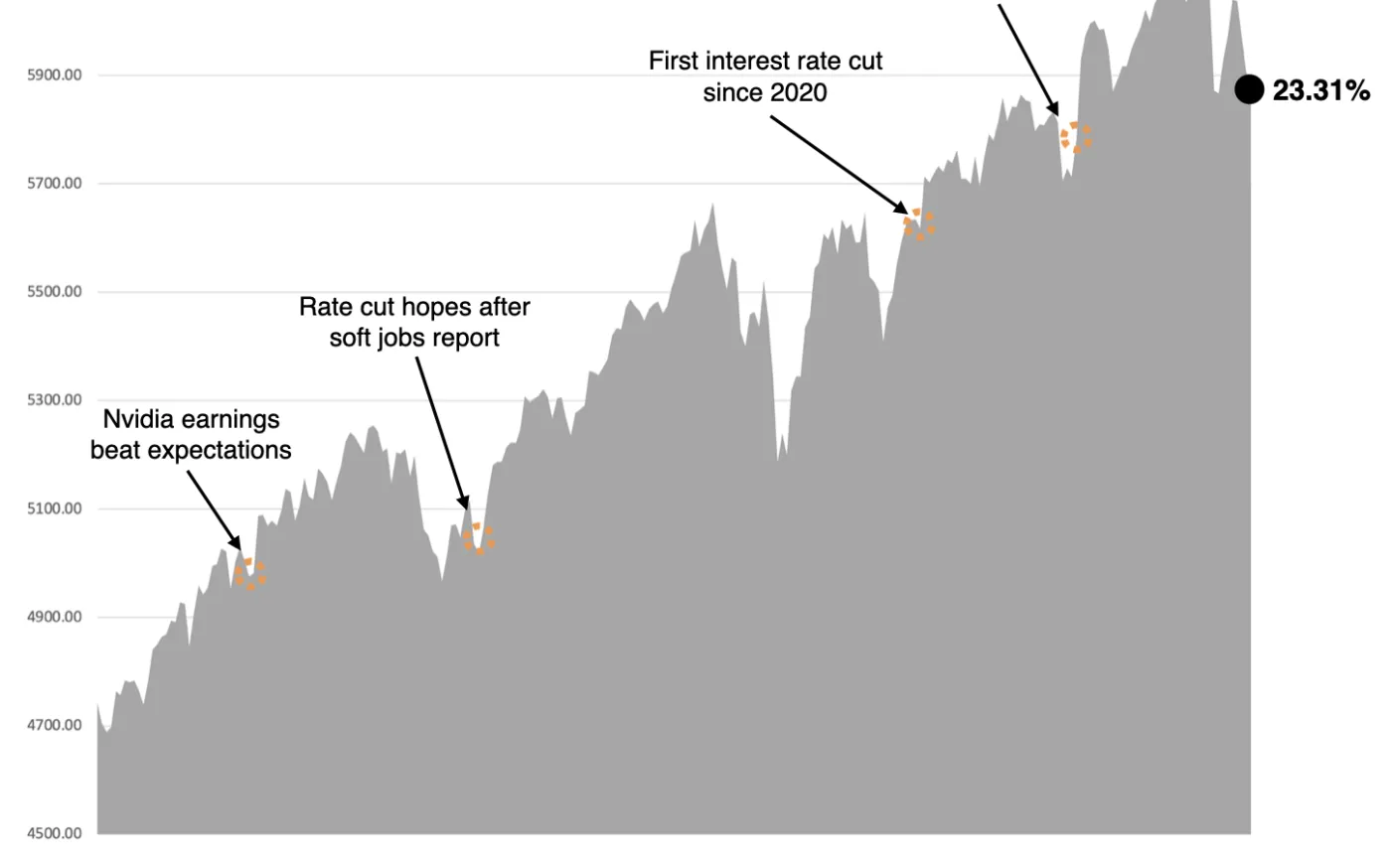Tax season doesn’t have to feel like an uphill battle. With the right strategies, you can minimize your tax bill and keep more of your hard-earned money where it belongs, in your pocket. Whether you’re a DIY tax filer or rely on a pro, understanding these key moves can help you make smarter financial decisions and sidestep costly mistakes. Let’s dive in. 1. Adjust Your Withholding to Avoid Surprises Getting a big refund might feel...
If you’re like many investors, the thought of paying capital gains taxes on your successful investments might feel overwhelming. But what if there was a strategy to potentially reduce some of those taxes? It’s called tax loss harvesting, and while the term might sound complicated, it's actually a fairly simple concept that could save you money. Let’s break it down. What Is Tax Loss Harvesting? Think of your investments like a fruit-bearing tree. Some branches...
What do presidential elections mean for your portfolio?
What will happen to your business when it’s time for you to take a step back? That can be a tough question that many business owners eventually have to face. Yet, far too many admit they don't have a formal succession plan in place. In fact, looking at family businesses alone, about 61% say they do not have a documented succession plan. 1 Why? Many business owners say they haven’t put together a succession plan...
What money topics are the most taboo to talk about? Earnings, debt, inheritance, or net worth? For most of us, many financial topics are simply off-limits. 1 That means that many of us are not discussing money as much as we probably should be. 1 Without those talks, myths about money and financial conversations can get a much stronger grip on our perspective and our financial decisions. That silence may end up stunting our financial...
Market volatility can feel like a rollercoaster. Thrilling on the way up, stomach-churning on the way down. Even seasoned investors get a little uneasy when the market takes a dive. But here’s the thing: While market fluctuations are inevitable, maintaining a disciplined investment approach has historically helped investors stay on track toward their financial goals. If market swings make you nervous, don’t worry. You’re not alone. We’re going to walk through some key strategies to...
It’s been hard to miss the wave of attention-grabbing headlines lately. News cycles have been dominated by concerns over Big Tech’s earnings, trade tensions, and a potential economic slowdown in 2025. Even seasoned investors can feel uneasy when faced with headlines like these.
What financial habits have helped you most in life? Which ones have held you back? No matter how you answer those questions, your money habits have a lot to do with how you grew up. 1 They also can be shaped by when you grew up. That’s because each generation can have a distinct perspective and different experiences shaping their approach to money and financial choices. With that, every generation can bring its own strengths...
What does it take to minimize your tax bill, not just this year but in the years to come? The answer varies for each individual. Tax optimization strategies depend heavily on personal assets and financial goals, which are unique to everyone. However, nearly all high-net-worth individuals (HNWIs) share one common objective: reducing their tax obligations to the absolute minimum allowed by law. Achieving this often involves leveraging specific strategies and tools that can work together...
As we step into 2025, I thought it would be beneficial to take a moment and reflect on what an extraordinary year 2024 was for investors.
Watching your portfolio take a hit can be unsettling, but staying focused on the long game is crucial. Even in uncertain times, a long-term strategy helps you navigate market ups and downs more effectively. Here, we’ll explore why market corrections are normal, how understanding historical trends can offer reassurance, and why sticking with your strategy benefits your financial future. Understanding Market Corrections: How Common Are They? Market corrections—typically defined as a drop of 10% or...
Is your retirement savings on track? If you’re like most people, you may feel it’s not. In fact, concerns about running out of money in retirement are very common. 1, 2 Many people today believe they’ll need at least $1.5 million saved to retire comfortably. 3 But is that number right for you? The real “magic number” varies widely depending on your current savings, future goals, and lifestyle plans. A clearer picture of retirement readiness...













